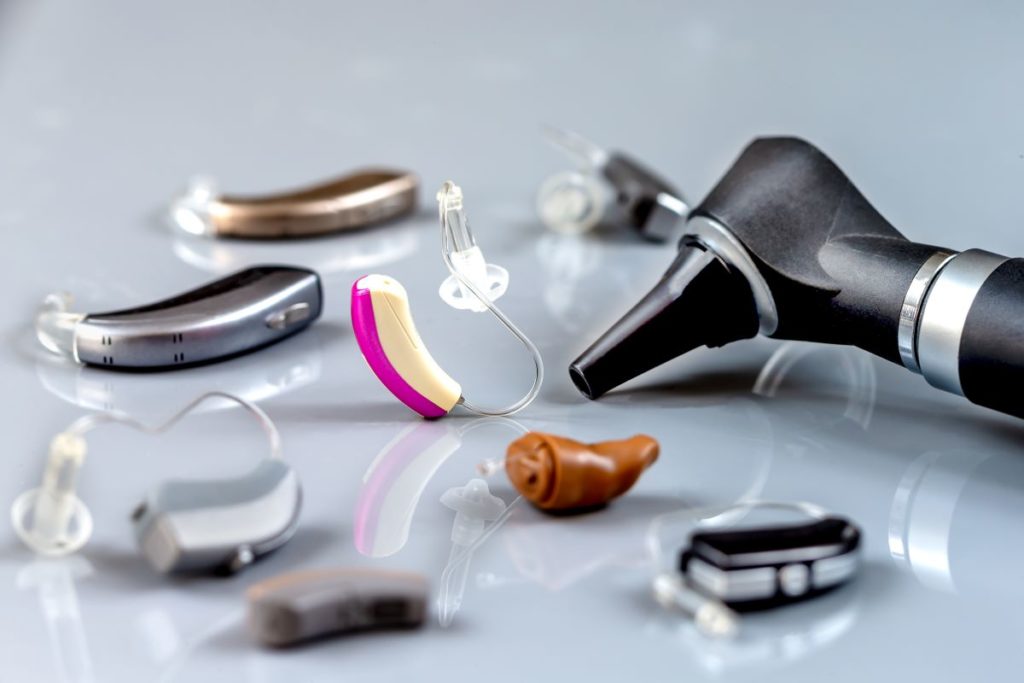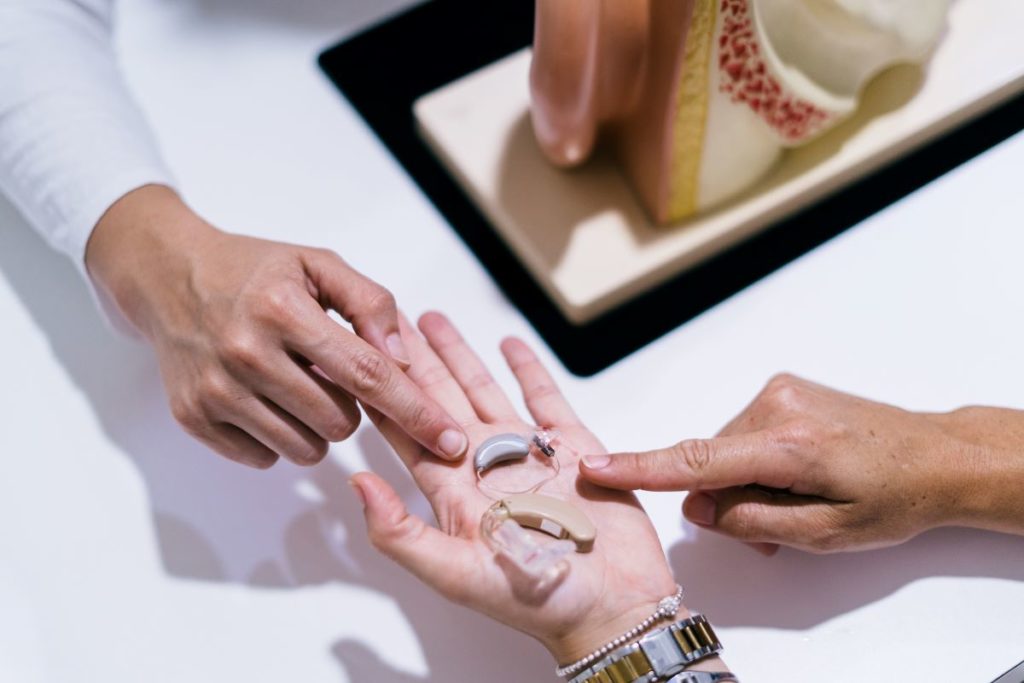How effective are hearing aids?
Hearing aids are the most common treatment option for hearing loss and have been for many years, but how effective are they?
.jpeg)
If you’ve found your hearing ability has started to decline and have concerns that you may be experiencing the onset of hearing loss, it’s likely that you may require hearing aids.
Noticing any changes to your health can often be frightening, leaving you feeling unnerved and likely overwhelmed with how your life may need to adjust. This isn’t uncommon for people suffering from hearing loss, and it’s typically the reason why many put off seeking a diagnosis and treatment. However, this usually leads to exacerbating the problem later down the line.
Hearing aids are the most common treatment option for hearing loss and have been for many years. However, many people are still hesitant about wearing them and are often sceptical about their effectiveness. In this blog, we’ll cover exactly what hearing aids can and can’t do for those requiring them.
What are hearing aids?
Firstly, let’s define what hearing aids are and what they’re designed to do. Hearing aids are small electronic devices which are worn inside the ear canal or behind the ear. They are made up of three main components: an amplifier, speaker and microphone.
At its most basic function, hearing aids work by receiving sound waves through the microphone. The microphone then converts these waves to electric signals and sends them to the amplifier. The amplifier essentially makes these sounds louder by increasing the power of the signals and sending them directly to the ear through the speaker.
There are many different types of hearing aids which are designed to suit each individual’s hearing needs and style preferences. This means that whilst the devices all operate on the same principles, they can be tailored to suit the severity of a particular hearing loss and amplify sounds in the way that will be most beneficial to the individual.

How do hearing aids help?
Hearing aids don’t fully restore a person’s hearing, that would be impossible. Instead, they work to improve hearing and speech comprehension, helping to restore them to a level that is almost similar to before the person’s hearing ability became damaged.
When getting hearing aids fitted for the first time, it’s important to go into it with the mindset that they aren’t intended to make your hearing perfect but they’re designed to improve it. The idea behind them is simply to make sounds louder and clearer, in order to enhance your understanding of speech and the sounds around you.
They are custom programmed to adapt to an individual’s unique pattern of hearing loss so that they can best serve their required hearing needs. Everyone has different types and severity of hearing loss, so a device that works for one won’t necessarily work for another – even if they have the same diagnosis.
Are hearing aids effective for all types of hearing loss?
Almost all types of hearing loss can be treated with hearing aids, provided that you do still have some hearing ability left and haven’t lost the sense completely.
There are three main types of hearing loss: sensorineural, conductive and mixed (sensorineural and conductive combined). You can read more about them here.
Conductive and mixed hearing loss can be temporary and may be resolved medically or with treatments such as ear wax removal. Sensorineural is the most common type of hearing loss and is the one that hearing aids are typically prescribed for.
Sensorineural hearing loss means that some of the tiny hair cells in the inner ears are damaged. Depending on the severity of the damage, they will typically still be surrounded by healthy hair cells which allow hearing aids to work effectively. These healthy hair cells will pick up the sound delivered by the hearing aid and send them as neural signals to the brain. This amplifies the sounds or speech and allows the person to hear it better than they would without the device.
There are different severities of sensorineural hearing loss that are determined by how damaged the hair cells are, and whether it affects one or both ears. The severity will determine which type of hearing aid will work best. For example, standard hearing aid ranges are suitable for those with mild-to-moderate hearing loss, and those with severe-to-profound hearing loss benefit more from ‘power’ hearing aid models fitted with advanced technology.

Benefits of hearing aids
Suffering from hearing loss can be a huge challenge, both mentally and physically. Without seeking the appropriate treatment, being hard of hearing can have unmeasurable impacts on your quality of life.
Hearing loss makes keeping up with conversations difficult and social occasions less enjoyable which can in turn lead to a number of problems including anxiety and social isolation.
Hearing aids are designed to help alleviate these common problems and improve the quality of life of those wearing them. Simply regaining the ability to hear common sounds clearly such as the phone ringing and doorbell chiming and having speech clarity face-to-face and over phone calls can make the biggest difference in navigating day-to-day life. In turn, this is linked to overall better health and well-being.
Not only that, but struggling to hear places a huge amount of strain on the body, which can lead to further complications down the line. If hearing loss goes untreated, the stress on your brain and body builds up over time and can result in additional medical issues and a greater degree of hearing loss.
Without any cures for hearing loss, hearing aids are undoubtedly the best treatment solution for anyone suffering. It goes without saying that the sooner you get hearing aids, the more effective they will be.
How to get hearing aids
Getting the correct hearing aids to suit your needs starts with getting an accurate diagnosis of your hearing problems through a hearing test.
Hearing tests should only be conducted by a professional and qualified audiologist who can accurately determine the severity of your hearing loss and identify the most suitable treatment option tailored to your needs.
If you’re local to North London, Nathan Gluck Hearing Care can help. With over 25 years of experience, we provide a professional and attentive hearing care service to patients in Golders Green, Potters Bar, Elstree and the surrounding areas.
We specialise in conducting in-depth hearing tests and prioritise getting to know you and your individual hearing needs. With this we can offer much more than a cookie-cutter solution, we can determine exactly what will work best for you. We have direct access to an extensive range of hearing aids from industry-leading manufacturers and can fit you with the perfect device tailored to you and your budget.
Our patients are our priority and we’re committed to offering the highest level of service possible. That’s why we offer same-day and late-night appointments where possible, so we can be as flexible as our patients need us to be.
If you’re interested in finding out more about our hearing care services, please get in touch with us. We’d love to hear from you.

